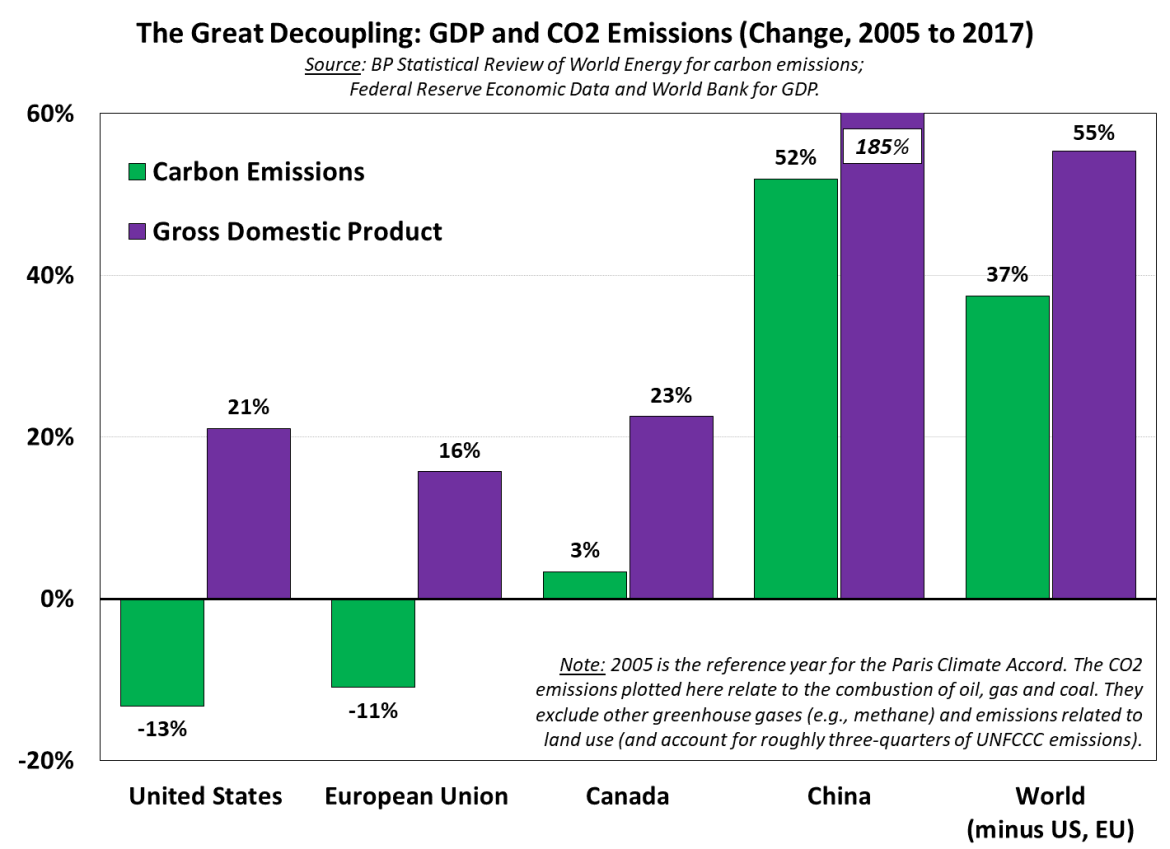
Share
Since the dawn of the industrial revolution some 250 years ago, economic growth has been dependent upon the growth of fossil fuel emissions. The historically unprecedented economic growth that is the product of industrial development has drastically improved the quality of human life. People with higher incomes live longer, healthier, more secure and altogether happier lives. However, as we’ve learned in the past half century, the buildup of greenhouse gases in the atmosphere is the prime cause of runaway climate change, which poses a threat to civilization itself.
The challenge, then, is to ‘decouple’ economic growth from greenhouse gas (GHG) emissions. Historically, for an economy to increase its national income it would also have to combust more fossil fuel. The relationship between GDP growth and GHG emissions must be broken, and a combination of technological and policy factors are making it possible (for the first time in history) to increase GDP while decreasing greenhouse gases.
Some societies have already begun this decoupling (see the chart below). Since 2005, the United States has managed to add 21 percent to its GDP while shrinking its carbon emissions by 13 percent. A variety of technological and policy factors appear to be at play, including vehicle emissions standards, a reduced reliance on coal-powered electricity, the shale revolution and the explosion of renewable energies like wind and solar. The European Union, too, has severed growth from emissions, having increased its GDP by 16 percent since 2005 while lowering its carbon footprint by 11 percent.
In Canada, the Liberal Government’s carbon tax plan will commence in 2019 and the hope is that it will decouple GDP growth from greenhouse gas emissions. The Paris Climate Accord mandates a 30 percent reduction in greenhouse gases from 2005 levels by 2030. Canada has become more efficient with the use of carbon, to be sure, having added just three percent to its emissions since 2005 while adding 23 percent to its GDP, but it has still not severed the link between the two. The hope is that the continued growth in renewable energies in combination with smart climate policy will decouple GDP growth from GHG emissions.



